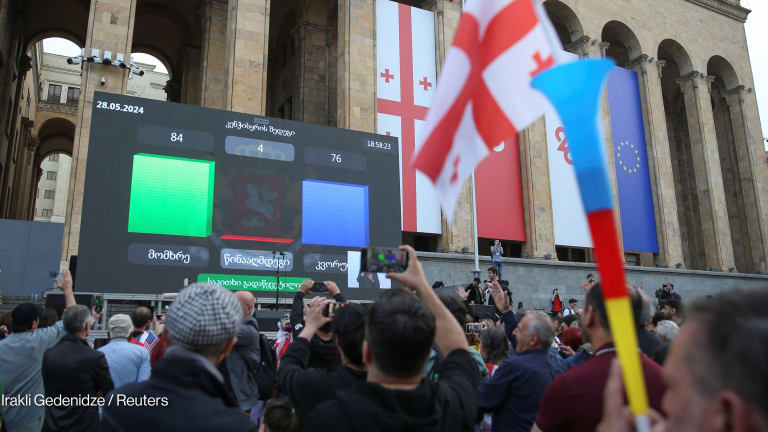Despite rhetoric in support of democracy, the majority of donors continue to provide aid to countries led by rulers with questionable records, William Easterly argues.
This is the international aid system’s “dirty secret,” the well-known economist and New York University professor writes in an article published in the New York Review of Books.
“The conventional narrative is that donors supported dictators only during the cold war and ever since have promoted democracy. This is wrong,” Easterly says.
He explains that countries such as Cameroon, Ethiopia, Rwanda, Uganda, Guinea, Cambodia, Tajikistan and Uzbekistan, which are ruled by “tyrants” and “dictators” continue to receive large amounts of aid from Western donors.
Easterly notes that good governance has indeed figured more prominently in donors’ agenda since the end of the cold war, with the World Bank stating that [a]id is less effective in a weak governance” and the U.S. Agency for International Development declaring that it is dedicated to “promoting sustainable democracy,” among others.
But all this talk seems to disappear in explicit discussions of aid, he observes, citing as example the absence of democracy in speeches made by various world leaders during the U.N. high level plenary on the Millennium Development Goals in New York in September.
“To be fair to the donors, they do sometimes show concern for democracy. Donor countries became involved in internationally supervised elections in formerly war-torn societies like Sierra Leone, Liberia, and the Democratic Republic of the Congo,” he shares. “Donors such as the U.S. also applied pressure to Kenya to conform to democratic principles after the long-time autocrat Daniel Arap Moi left office, and again in 2007–2008 when there was a seriously flawed election. However, other flawed elections happened with little complaint from donors (such as in Nigeria in 2007), not to mention the farcical ‘elections’ in the aid-supported dictatorships I have mentioned.”
Easterly identifies two potential reasons why donor countries continue to provide aid to the countries he named: to gain allies in the fight against terrorism and to make sure aid money keeps coming.
Most donors support countries, such as Ethiopia and Central Asian nations, with hopes of making them their allies, he explains. Aid agencies also often disburse aid in order to keep their budgets flowing.
“Aid agencies exist to give aid, so they must keep the money flowing,” Easterly explains. “The department of an aid agency assigned to help a country may not get a budget next year if its officials don’t disburse to the country’s ruler this year; so they hand out funds no matter how autocratic he is.”
Easterly notes that African intellectuals are growing tired of this practice by donors and are increasingly starting to protest against it. He names several African writers who have used their books to argue against what they often refer to as “double standards of the donor countries.”
Among the intellectuals Easterly named is Mo Ibrahim.
“The Sudanese entrepreneur Mo Ibrahim has created an “index of good governance” in Africa and awarded an annual prize to a democratic leader who has voluntarily left office. Far from bending to any lower standard for Africa, Ibrahim has refused to award the prize the last two years for lack of an adequate candidate,” Easterly says.








